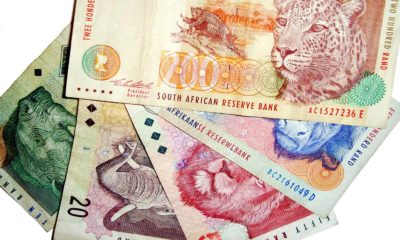Amidst a backdrop of global economic shifts and geopolitical recalibration, gold prices dipped below the $2,300 price level.
The decline comes as investors carefully analyse signals from the Federal Reserve regarding its future interest rate policies.
After reaching record highs earlier this month, gold suffered its most daily decline in nearly two years, shedding 2.7% on Monday.
The recent retreat reflects a multifaceted landscape where concerns over escalating tensions in the Middle East have eased, coupled with indications that the Federal Reserve may maintain higher interest rates for a prolonged period.
Richard Grace, a senior currency analyst and international economist at ITC Markets, noted that tactical short-selling likely contributed to the decline, especially given the rapid surge in gold prices witnessed recently.
Despite this setback, bullion remains up approximately 15% since mid-February, supported by ongoing geopolitical uncertainties, central bank purchases, and robust demand from Chinese consumers.
The shift in focus among investors now turns toward forthcoming US economic data, including key inflation metrics favored by the Federal Reserve.
These data points are anticipated to provide further insights into the central bank’s monetary policy trajectory.
Over recent weeks, policymakers have adopted a more hawkish tone in response to consistently strong inflation reports, leading market participants to adjust their expectations regarding the timing of future interest rate adjustments.
As markets recalibrate their expectations for monetary policy, the prospect of a higher-for-longer interest rate environment poses challenges for gold, which traditionally does not offer interest-bearing returns.
Spot gold prices dropped by 1.2% to $2,298.67 an ounce, with the Bloomberg Dollar Spot Index remaining relatively stable. Silver, palladium, and platinum also experienced declines following gold’s retreat.
The ongoing interplay between economic indicators, geopolitical developments, and central bank policies continues to shape the trajectory of precious metal markets.
While gold faces near-term headwinds, its status as a safe-haven asset and store of value ensures that it remains a focal point for investors navigating uncertain global dynamics.

 Forex3 weeks ago
Forex3 weeks ago



 Naira2 weeks ago
Naira2 weeks ago
 Billionaire Watch2 weeks ago
Billionaire Watch2 weeks ago




 Naira2 weeks ago
Naira2 weeks ago






 Naira4 weeks ago
Naira4 weeks ago




 Naira2 weeks ago
Naira2 weeks ago


 Naira1 week ago
Naira1 week ago






 Naira4 weeks ago
Naira4 weeks ago




















